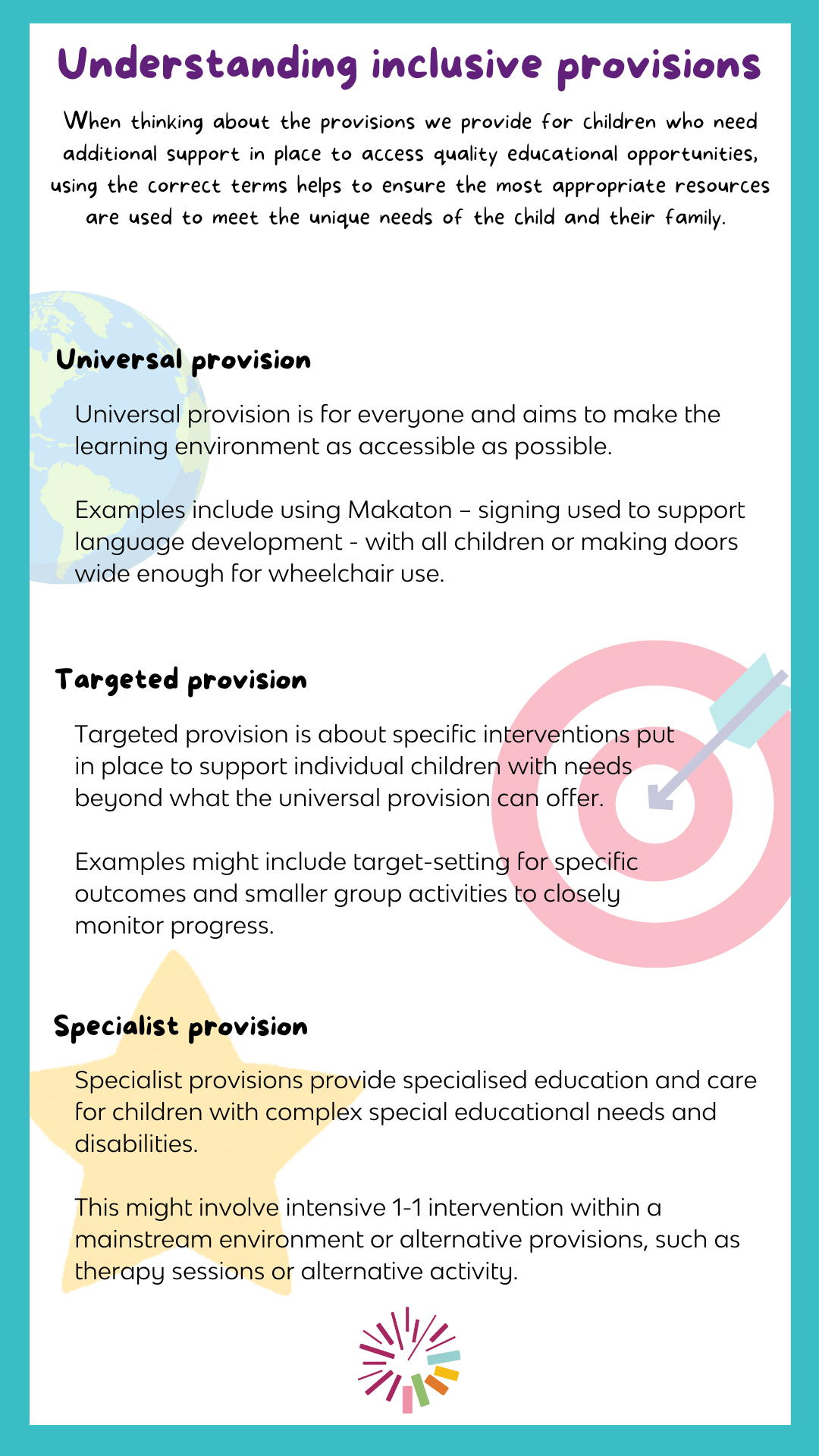Understanding inclusive provisions
When talking about children with special educational needs and disabilities (SEND), additional support for learning (ASL) or additional learning needs (ALN), the support we put in place and the people we work with, it’s important to use the right language and understand the terms we use. And when thinking about the provisions we provide for children who need additional support in place, this becomes vital to ensuring the most appropriate resources are used to meet the unique needs of the child and their family.
Universal provision
Universal provision is early education and care provision that is for everyone and aims to make the learning environment as accessible as possible. Examples include using Makaton – signing used to support language development - with all children or making doors wide enough for wheelchair use.
Targeted provision
Targeted provision is about specific interventions put in place to support individual children with needs beyond what the universal provision can offer. This might include target-setting for specific outcomes and smaller group activities to closely monitor progress. Support plans can be put in place to better structure this provision.
Specialist provision
Specialist provisions provide specialised education and care for children with more complex special educational needs and disabilities. This might involve 1-1 support within a mainstream environment or alternative provisions, such as therapy areas, quiet spaces away from the main setting or specialist provisions designed specifically to support greater needs. Specialist provision will often involve multiple agencies to best support the child’s needs.







